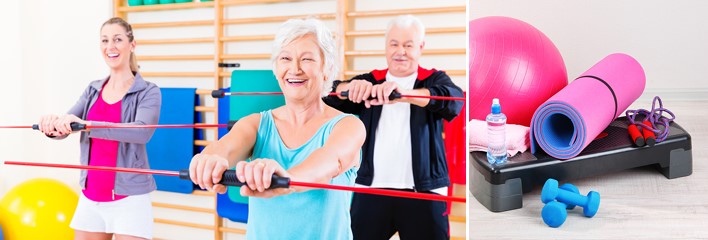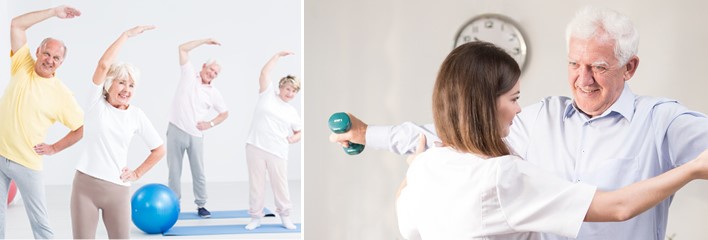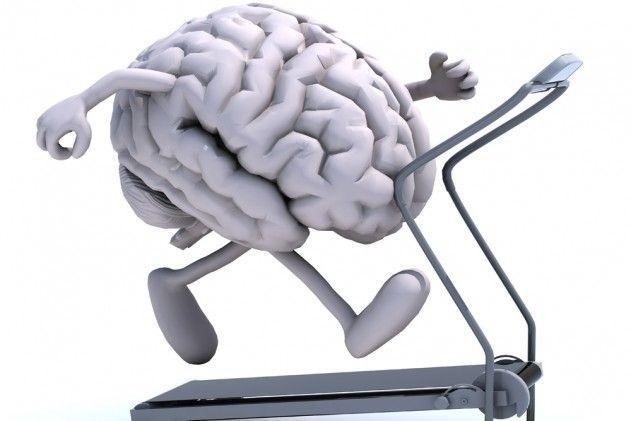Keeping your mind active helps to prevent cognitive symptoms; for this reason, you may want to do daily mental exercises, such as:
Overview of Supportive Therapies
A person living with Parkinson’s can also benefit from a holistic approach to their health and wellbeing. Needs can change at different times, depending on symptoms and mental health. It is good to be aware of all the therapies available so that you can call on them as and when you need them. Below is an overview of some therapies that are often available.


Physiotherapy
A physiotherapist will focus on managing the motor symptoms of Parkinson’s in order to keep you in the best possible physical condition. They will help you maintain your muscles and control movement through teaching you exercises tailored to your individual needs.
Physiotherapy plays an increasingly important role in the treatment of Parkinson's and can include strength and stretching exercises, as well as strategies to prevent falls and maintain independence in daily activities. It makes sense to start regular physiotherapy as soon as possible after diagnosis.
The key aims of physiotherapy in Parkinson's are:
to maintain and improve functional ability and independence
to correct and improve posture and balance
to minimise the risk of falls
to allow strength and flexibility to be maintained
to enhance daily activities (getting in and out of bed, rising from a chair)
to maintain a safe walking pattern (with or without mobility aids)
if freezing is evident, coping strategies such as auditory or visual cues may be taught
to improve manual activities (reaching and grasping)
to maintain respiratory function through breathing exercises
to teach relaxation techniques
to educate carers.


Speech and language therapy
In Parkinson’s, speech and language therapy focuses on the ability to speak and swallow. Parkinson’s disease affects muscles in the face, mouth and throat that are used to speak. Many people find that their voice becomes lower than usual, that they have difficulty speaking and/or develop difficulties with swallowing.
A speech and language therapist is trained in all forms of communication, including non-verbal communication such as facial expressions or body language. The speech therapy programme will be different at different stages of Parkinson’s. In the early stages of Parkinson’s, you learn strategies and exercises to help with voice volume, speed of speech, breathing, facial expressions and clear pronunciation of words. Therapists can give you some tips on speaking in noisy environments as well as problems associated with eating and drinking.
As communication may become more difficult, therapists can offer advice on ways to cope with it. Some examples include the use of assistive devices like computers or voice amplifiers, making eye contact while speaking, or planning activities when you feel at your best.
Occupational therapy
This is to help you with strategies to enable you to continue to perform everyday tasks that you may have started to struggle with. The aim is to help you maintain the highest possible level of independence. Occupational therapy can also involve advice and assistance for making your home set-up as easy to navigate as possible.
Occupational therapy can also help if you are working. For example, providing training to maintain hand writing and exercises that support attention and memory. Also, leisure activities, such as painting and creative designing, are often used in occupational therapy to train manual skills.
The occupational therapist can also advice on aids that support every day activities. For example, aids for putting on socks or buttoning up clothes. They can also advise on home adaptations.
Often, occupational therapists offer family counselling. Family or friends close to you may be able to come along to gain a better understanding of how they can best support you and your treatment.
Some tips to Home Adaptations
Many adaptations can be made to your home to make it easier for you:
- Adding rails to doorways or stairs
- Installing ramps
- Widening doorways
- Removing or levelling threshold strips between rooms
- Adding stair lifts
- Replacing a bath with a walk-in shower
- Adding shower chairs
- Mounting bars or handrails in tubs, showers or near the toilet
- Placing non-skid rubber bath mats in showers
- Installing a raised toilet seat
- Inserting chair or bed raisers
- Adding a handle or bed rail for getting out of bed
Cognitive stimulation training
Parkinson’s can affect your cognition, such as increasing the time you need to think and respond, as well as attention and memory, though not every person experiences them.
Cognitive stimulation training involves doing brain-training exercises that may help to prevent, or reverse, cognitive symptoms. Guided by a specialist in neuropsychology (a doctor specializing in the function and structure of the brain), cognitive stimulation may help to preserve functions such as memory, attention and the ability to maintain your body movements and posture in relation to the environment (spatial orientation).

Reading and writing exercises are great ways to maintain and improve creativity, attention and memory.
Traditional board games and card games are a nice social activity and train attention, concentration, short-term memory or critical thinking.
Crossword puzzles, sudokus and word searches are great brain exercises for perception, memory, logic and deductive reasoning, planning, memory, coordination and patience. They also have the benefit that the level of difficulty can be increased as you get better at them.
Emotional and psychological support
Talking to a psychologist can help people living with Parkinson’s to deal with their symptoms, as well as the impact that living with Parkinson’s can have on their mood and how they are feeling. Talk to your healthcare team if you would like to chat with someone about your mood and how you are feeling.
Send your Feedback!
Would you recommend the UCBCares website to other visitors?
